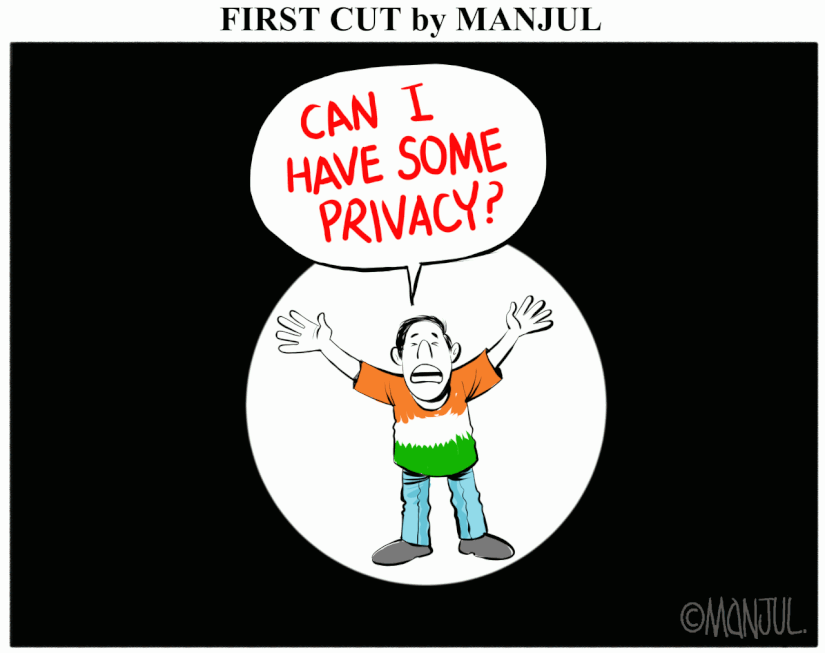The Supreme Court on Wednesday said privacy is an amorphous term which is not absolute and cannot prevent the State from making laws imposing reasonable restrictions on citizens.
According to a report in The Hindu, the court said that in order to recognise privacy as a right, it would first have to define it. But this would be a near impossible task as an element of privacy pervaded all fundamental rights enshrined in the Constitution. Senior counsel Gopal Subramanium told the Supreme Court on Wednesday that the right to privacy is a pre-existing natural right which is inherent in the Constitution, even though it is not explicitly mentioned. Subramanium is leading the argument on behalf of the petitioners who have challenged the Aadhaar scheme on the grounds that it violates the right to privacy. Subramanium said, “The right to privacy is recognised as a fundamental right under Article 21 of the Constitution. The concept of privacy is embedded in liberty as well as a person’s honour.” His arguments came as the apex court on Wednesday began hearing arguments whether privacy was a fundamental right. A nine-judge constitution bench headed by Chief Justice Jagdish Singh Khehar is examining the nature of privacy as a right in context of two judgments —the first in 1954, the other in 1962 — which held that privacy was not a fundamental right. [caption id=“attachment_3831409” align=“alignnone” width=“825”] Cartoon by Manjul.[/caption] The other judges hearing the case are: Justice J Chelameswar, Justice SA Bobde, Justice RK Agrawal, Justice Rohinton Fali Nariman, Justice Abhay Manohar Sapre, Justice DY Chandrachud, Justice Sanjay Kishan Kaul and Justice S Abdul Nazeer. Senior counsel Shyam Divan told the bench that even Union finance minister Arun Jaitley, during a debate on the Aadhaar Bill in the Rajya Sabha, asserted that privacy was a fundamental right linked to liberty under Article 21 of the Constitution. Responding to a question during debate in the Rajya Sabha on 16 March, 2016, finance minister Jaitley had said that the top court was considering the conflicting judgments on privacy and whether it was a fundamental right or not. Having said that Jaitley told the Rajya Sabha that “The present bill (Aadhaar) pre-supposes and is based on a premise that it is too late in the day to contend that privacy is not a fundamental right. So I do accept that probably privacy is a fundamental right.” Jaitley had told the Rajya Sabha that “It is now accepted that privacy is a part of individual liberty” and referring to Article 21 he said “Let us assume that privacy is a part of liberty and no person shall be deprived of privacy without due process of law”. Having quoted the Union finance minister in support of his contention that privacy was a fundamental right, Divan said that in the past 40 years since the mid-1970s different benches of the top court have consistently held that privacy was a fundamental right. He urged the bench to reaffirm this right. With inputs from IANS


)




